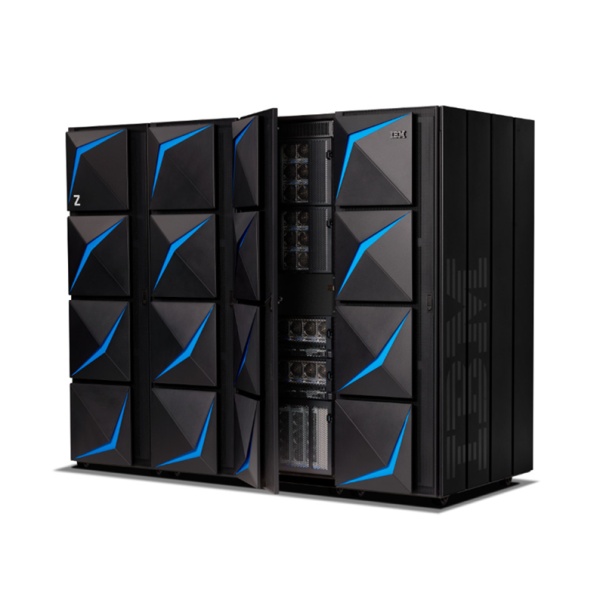During the Covid pandemic lockdowns in 2020, many enterprises were forced to buy thousands of laptops (in a big hurry) to enable their people to work from home.
Now, a bit more than 3 years later, supply chains have somewhat stabilized, PC prices have returned to normal-ish, and it’s just about time to think about replacing those 3+ year old devices as their warranties expire and the hardware starts showing its age.
Most of our clients default to the same old mental model that the Microsoft – Intel duopoly have been selling for decades:
- Buy a full-power, full-featured, high-performance Windows 11 PC for every employee.
- Load your core corporate software onto that giant internal drive (or have an outsourcer load it for you).
- And buy a bunch of security and malware and data protection software - because we all know that having sensitive corporate data and automated logins to corporate systems sitting around on people’s laptops in coffee shops, airports, bags and cars is a high-risk situation.
- Ship those high-risk devices all over the world and leave them in distinctive boxes on people’s front porches.
- Have your employees set them up, call the help desk, deal with the inevitable problems, hope the kids don’t spill chocolate milk on them…
- Oh, and let’s not forget, you also need to get the old PC’s data wiped, boxed up and shipped back to… someplace…
Microsoft, of course, is delighted to offer you a comprehensive suite of tools and services to enable and manage all of this. The “E5” suites are promised to be a single source to keep all of your corporate data and devices secure and running optimally.
For a price, that is.
You can buy the full Microsoft 365 E5 suite for a bargain price of $684/year, or a bit cheaper in volume. That gets your users the familiar Windows, Outlook, local Office experience that everyone knows and loves and uses to send Excel and PowerPoint attachments by email. Plus, all the cloud services that your users don’t use, like OneDrive, SharePoint, ...oh and Teams.... everyone's favorite meeting solution. And the security and management utilities that your users don’t even know exist, but you get to pay your highly trained and high-cost IT staff to learn and support.
I’m sure you don’t need to be reminded, but let’s just run some example numbers as a case study:
- A decent corporate laptop is $1,000 minimum, maybe $1,500 depending on specs.
- A “power user” machine is $2,500 to over $5,000.
As we noted, Microsoft will be somewhere north of $600/person/year, depending on your exact app stack. And of course, plug in your costs for the configuration, shipping, depot storage and logistics, the Help Desk call volume, insourced or outsourced technician time, and a few other costs that I’m sure I’m forgetting but will inevitably pop up at the worst possible moment. Let’s just call all those an even thousand bucks per PC lifetime.
So, over a typical 3-year PC life, you’re looking at all-in TCO of between ($1000 + (600x3) + 1000) = $3800 on the low end, to well over $8k on the high end. Now multiply by your number of end users and, wow that number gets big fast.
All to do what, exactly? Here’s where we get to the good part.
You’ve spent the last several years doing everything you can to get your company “to the cloud” and now you are living the “cloud first” life, where every app is a cloud app, every client is a web browser, your employees can do their jobs in many cased from their smartphones, or iPads, or BYOD computers…, even if you aren’t quite there yet, that is the direction, right?
It’s the new world of computing. The endpoint device no longer matters, because the data stays in the secure cloud, the app runs from the cloud, in a browser window, and internal data and communications also live 100% on cloud storage… right?
So why are you still buying giant hard drives on expensive PC’s and shipping them to people’s front porches?
It’s a rhetorical question… I know why you are. It usually boils down to a few common problems:
- You have that one app that still requires a local C: drive but you don’t have the ability to get rid of it, or cloudify it.
- Your employees run the business and resist change of any kind and if you try to move to a cleaner, safer, more secure, cloud-based work model, they will revolt, and you’ll be looking for another job.
- The financials at this level are really not important to the business, so “business as usual" is the safest choice.
BUT
IF any of the above is not true…
or only partially true…
or can potentially be overcome...
THEN
You have an opportunity to dramatically reduce your PC refresh costs, dramatically reduce your associated end user computing TCO, and dramatically reduce your costs for Microsoft and the related security and compliance ecosystem.
IF that’s the case… THEN call us to help you break the habit and redirect the cost stranded in “business as usual”. Preferably BEFORE you order a bunch of new laptops to ship to people’s front porches.
About NET(net)
Founded in 2002, NET(net) is the world’s leading IT Investment Optimization firm, helping clients find, get, and keep more economic and strategic value in their technology supply chains. Over the last 20 years, NET(net) has influenced trillions of investment, captured hundreds of billions of value, and has helped clients cost and value optimize XaaS, Cloud, Hardware, Software, Services, Healthcare, Outsourcing, Infrastructure, Telecommunications, and other areas of IT spend. NET(net) has the experience you want, the expertise you need, and delivers the performance you demand and deserve. Contact us at info@netnetweb.com, visit us online at www.netnetweb.com, or call us at +1 (616) 546-3100 to see if we can help you capture more value in your IT investments, agreements, deployments, and relationships.
NET(net)’s Website/Blogs/Articles and other content is subject to NET(net)’s legal terms, offered for general information purposes only, and while NET(net) may offer views and opinions regarding the subject matter, such views and opinions are not intended to malign or disparage any other company or other individual or group.


















